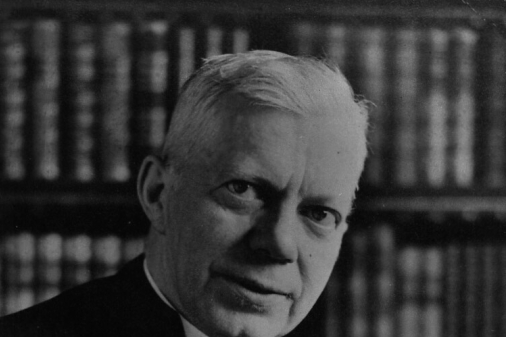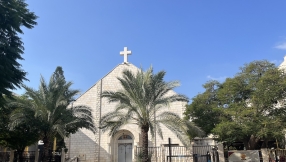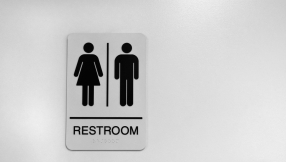The Church of England will today apologise for its handling of an abuse claim against the late George Bell, the revered former Bishop of Chichester, saying 'our processes were deficient in a number of respects, in particular the process for seeking to establish what may have happened'.
The Church will also acknowledge that it has added to the 'pain' of the relatives of Bishop Bell, internationally recognised as a giant of the Church, as well as that of his accuser, and the current Bishop of Chichester will add that 'we have all been diminished by the case'.

Yesterday, Christian Today revealed that the Church was bracing itself for criticism over processes in the report.
Following a report in a newspaper on Friday that Lord Carlile's report into the case criticises the Church for besmirching and ruining the reputation of the late former Bishop, the Church of England late last night issued a statement from Bishop Peter Hancock, the Church of England's lead safeguarding bishop, who responded on behalf of the Church.
He will say: 'It is clear from the report...that our processes were deficient in a number of respects, in particular the process for seeking to establish what may have happened. For that we apologise. Lessons can and have been learnt about how we could have managed the process better.'
He will add: 'We recognise that Carol has suffered pain, as have surviving relatives of Bishop Bell. We are sorry that the Church has added to that pain through its handling of this case.'
In 2015 the Bishop of Chichester issued a formal apology following the settlement of a legal civil claim regarding allegations of sexual abuse by Bishop Bell, who was Bishop of Chichester from 1929 until shortly before his death in 1958.
In November last year, the Church announced the Carlile review which it said was aimed at investigating 'the processes surrounding the allegations which were first brought in 1995 to the diocese of Chichester, with the same allegations brought again, this time to Lambeth Palace, in 2013'.
Lord Carlile's report was delivered on October 7, and is published by the Church on Friday.
Bishop Hancock will say: 'We are enormously grateful to Lord Carlile for this "lessons learned" review which examines how the Church handled the allegations made by Carol in the 1990s, and more recently. Lord Carlile makes a number of considered points as to how to handle such cases in future and we accept the main thrust of his recommendations.
'In responding to the report, we first want to acknowledge and publicly apologise again for the Church's lamentable failure, as noted by Lord Carlile, to handle the case properly in 1995.
'At the heart of this case was a judgement, on the balance of probabilities, as to whether, in the event that her claim for compensation reached trial, a court would have concluded that Carol was abused by Bishop Bell. The Church decided to compensate Carol, to apologise and to be open about the case.
The Church differs with Lord Carlile over his conclusion that confidentiality clauses should be included in cases where the settlement is made without admission of liability.
'Lord Carlile states that "where as in this case the settlement is without admission of liability, the settlement generally should be with a confidentiality provision" but respectfully, we differ from that judgement. The Church is committed to transparency. We would look at each case on its merits but generally would seek to avoid confidentiality clauses,' Bishop Hancock will say.
He will add: 'It is clear from the report, however, that our processes were deficient in a number of respects, in particular the process for seeking to establish what may have happened. For that we apologise. Lessons can and have been learnt about how we could have managed the process better.
'The Bishop Bell case is a complex one and it is clear from the report and minutes of Core Group meetings that much professional care and discussion were taken over both agreeing the settlement with Carol and the decision to make this public. As Lord Carlile's report makes clear, we acted in good faith throughout with no calculated intention to damage George Bell's reputation.
'The Church has always affirmed and treasured Bishop Bell's principled stand in the Second World War and his contribution to peace remains extraordinary. At same time, we have a duty and commitment to listen to those reporting abuse, to guard their confidentiality, and to protect their interests.
'We recognise that Carol has suffered pain, as have surviving relatives of Bishop Bell. We are sorry that the Church has added to that pain through its handling of this case.'
The Bishop of Chichester, Martin Warner, will also make a statement today, claiming that the 'good deeds that Bishop George Bell did [which were] recognised internationally...will stand the test of time'. But he will add: 'In every other respect, we have all been diminished by the case that Lord Carlile has reviewed.'
Bishop Warner will say: 'Lord Carlile's Independent Review is a demonstration of the Church of England's commitment to equality of justice and transparency in our safeguarding practice. The diocese of Chichester requested this "lessons learned" Review.
'We welcome Lord Carlile's assessment of our processes, and apologise for failures in the work of the Core Group of national and diocesan officers and its inadequate attention to the rights of those who are dead. We also accept the Report's recognition that we acted in good faith, and improvements to Core Group protocols are already in place. Further work on them is in hand.
'The report demands further consideration of the complexities of this case, such as what boundaries can be set to the principle of transparency. Lord Carlile rightly draws our attention to public perception. The emotive principle of innocent until proven guilty is a standard by which our actions are judged and we have to ensure as best we can that justice is seen to be done. Irrespective of whether she is technically a complainant, survivor, or victim, "Carol" emerges from this report as a person of dignity and integrity. It is essential that her right to privacy continues to be fully respected.
'The good deeds that Bishop George Bell did were recognised internationally. They will stand the test of time. In every other respect, we have all been diminished by the case that Lord Carlile has reviewed.'













